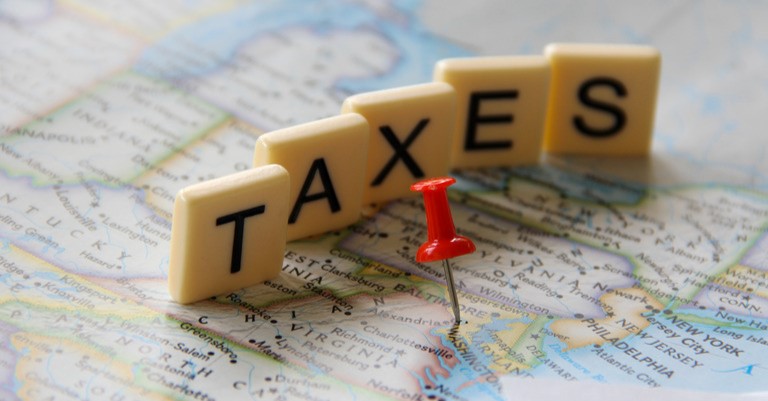As the UAE continues to strengthen its position as a global business hub, the introduction of a corporate tax regime has brought both challenges and opportunities. One of the most appealing benefits for businesses in the UAE remains the ability to maintain a 0% corporate tax rate, something which can be achieved through the status of a Qualifying Free Zone Person (QFZP), provided their taxable income does not exceed AED 375,000.
In 2025, maintaining this status will be a crucial strategy for many businesses seeking to minimize their tax burden while benefiting from the UAE’s world-class infrastructure, regulations, and access to international markets. To retain QFZP status, entities must ensure that their non-qualifying revenue does not exceed 5% of total revenue or AED 5 million (whichever is lower). Additionally, businesses that fail to meet these conditions risk losing their QFZP status for the current and subsequent four tax periods.
For large multinational enterprises (MNEs), the new Domestic Minimum Top-up Tax (DMTT) of 15% applies to those with consolidated global revenues of €750 million (approximately AED 2.99 billion) or more in at least two of the past four financial years. Furthermore, natural persons and freelancers earning over AED 1 million annually must register for corporate tax by March 31, 2025, or face a penalty of AED 10,000.
Free Zone Incentives in 2025: How Do They Work?
Incentives in the UAE free zones have long been a key driver for attracting both foreign and domestic investments. For 2025, these incentives remain a cornerstone of the UAE’s business-friendly environment. Free zones offer various benefits such as:
- 100% Foreign Ownership: One of the most significant incentives for foreign investors is the ability to own 100% of the business, without the need for a local partner.
- Exempt Customs Duties: Free zone businesses benefit from exemptions on customs duties on goods imported and exported from the zone.
- 0% Corporate Tax for QFZPs: As mentioned, qualifying businesses can enjoy a tax rate of 0%, resulting in greater profits and improved reinvestment opportunities.
- Simple Licensing and Setup: The free zones simplify business registration processes, making them faster and more cost-effective for businesses to establish.
However, it’s essential to note that these incentives are subject to specific substance requirements that must be met to qualify for the 0% corporate tax rate.
Understanding the Substance Requirements for QFZP Status
For businesses to qualify as Qualifying Free Zone Persons (QFZPs), they must meet certain substance requirements to demonstrate that their activities are genuinely based in the UAE. These requirements prevent the misuse of the QFZP status and ensure that the tax benefits are granted only to businesses with a legitimate operational presence in the UAE. Some of the critical substance requirements include:
- Physical Office Space: A business must maintain an actual physical office in the free zone to demonstrate operational substance.
- Active Operations: The business must engage in real, active operations such as trading, manufacturing, or providing services, with sufficient staff and facilities, including an “adequate number of qualified employees” and “adequate assets” proportionate to operations.
- Local Management: At least some of the management decisions must be made locally, and the business must have employees based in the UAE, with core income-generating activities (CIGAs) conducted within the Free Zone.
- Compliance with Local Regulations: Adherence to the regulatory frameworks is required, including maintaining audited financial statements compliant with IFRS and retaining records for a minimum of 7 years. Additionally, non-qualifying revenue must not exceed 5% of total revenue or AED 5 million (whichever is lower) to avoid loss of QFZP status for the current and subsequent four tax years.
What is Qualifying Income and Why Does It Matter?

For businesses aiming to maintain the 0% corporate tax rate, the next key requirement is generating qualifying income. The UAE Corporate Tax Law in 2025 outlines what constitutes qualifying income for QFZPs. This is important because only income that meets these criteria will benefit from the 0% tax rate.
- Transactions between QFZPs and other Free Zone Persons: Income derived from transactions between Qualifying Free Zone Persons (QFZPs) and other Free Zone Persons qualifies as Qualifying Income if:
- The Free Zone Person is the Beneficial Recipient of the transaction.
- The transaction does not relate to Excluded Activities as defined under the UAE Corporate Tax Law and Cabinet Decision No. 55 of 2023.
Examples of qualifying transactions:
- Provision of services (e.g., advisory, IT, logistics) to another Free Zone Person.
- Sale or licensing of qualifying intellectual property to a Free Zone Person.
- Intra-group cost-sharing or support service arrangements, provided the Beneficial Recipient is within a Free Zone.
- Activities Performed within the Prescribed Geographical Areas of a Free Zone:
- Certain activities carried out from within a Free Zone (or Designated Zone for distribution activities) are treated as Qualifying Activities under UAE CorporateTax rules.
Examples include:
- Manufacturing, processing, and assembly operations are performed within the Free Zone.
- Holding of shares and other securities.
- Fund management, wealth management, and related financial services are licensed in the Free Zone.
- Logistics and distribution activities are conducted in or from a Designated Zone, where goods are imported, stored, and re-exported without entering the UAE mainland.
The UAE’s definition of qualifying income ensures that only those businesses genuinely contributing to the UAE economy are eligible for the tax benefits associated with the QFZP status.
How to Maintain a Beneficial Corporate Tax Rate in 2025
Maintaining a beneficial corporate tax rate of 0% is achievable for businesses operating as a QFZP, but it requires ongoing compliance with the UAE’s tax regulations. Here’s how businesses can ensure they continue to benefit from this advantageous tax rate:
- Document Substance and Activities: Businesses should keep detailed records of their economic activities, office space, employees, and income sources. This documentation will be vital in demonstrating compliance with substance requirements and qualifying income.
- Regular Audits: Conducting regular audits to ensure that the business remains compliant with the UAE’s evolving tax laws is crucial. The UAE tax authorities have set up a robust system for monitoring and verifying the eligibility of businesses for the QFZP status.
- Adapting to Regulatory Changes: Stay informed of any changes to the UAE’s corporate tax laws, especially those affecting free zone businesses. In 2025, the UAE will have made efforts to tighten the rules around QFZP status, and any business that fails to adapt may face challenges in maintaining its 0% corporate tax rate.
- Seek Professional Advice: Given the complexity of tax regulations, it’s wise for businesses to seek professional advice from tax consultants or legal experts specializing in UAE corporate law to ensure they remain compliant and avoid penalties.
Key Benefits of QFZP Status in the UAE
Achieving and maintaining QFZP status comes with a multitude of benefits beyond just the 0% corporate tax rate. Some of these benefits include:
- Access to UAE’s International Markets: Free zone businesses, especially QFZPs, can easily access global markets thanks to the UAE’s strategic location and excellent infrastructure, supported by over 40 multidisciplinary free zones across the country.
- Reduced Operational Costs: The combination of no taxes, no customs duties, and other incentives makes operating in the UAE’s free zones cost-effective, with initiatives like instant licensing solutions (e.g., Meydan’s Fawri) enabling licence issuance in minutes.
- Attractive for Foreign Investors: Many free zones offer an environment that is very attractive to foreign investors, including easy setup processes and 100% foreign ownership rights, with panelists noting unprecedented growth in free zone activities over the last five years.
- Stable Economic Environment: The UAE’s stable political and economic environment is a major benefit for businesses seeking security and long-term success, reinforced by its commitment to international standards like the OECD’s Pillar Two framework, ensuring a minimum 15% tax for large MNEs (≥€750 million global revenue).
The Qualifying Free Zone Person (QFZP) status is one of the most powerful tax incentives available to businesses in the UAE in 2025. By meeting the substance requirements, generating qualifying income, and maintaining proper documentation, businesses can continue to benefit from the 0% corporate tax rate on qualifying income, provided non-qualifying revenue does not exceed 5% of total revenue or AED 5 million (whichever is lower). However, businesses must stay informed of regulatory changes and ensure ongoing compliance with the tax law to avoid potential risks, including loss of QFZP status for the current and subsequent four tax years if conditions are not met.
The UAE’s free zones remain an attractive option for both foreign investors and local entrepreneurs. With the right strategy and adherence to tax regulations, businesses can enjoy a tax-efficient environment while capitalizing on the many benefits the UAE has to offer.
FAQs
1. What is a QFZP in the UAE? A Qualifying Free Zone Person (QFZP) is a business or individual operating in a UAE free zone that meets specific criteria set by the UAE government to benefit from the 0% corporate tax rate. To maintain QFZP status, businesses must meet certain substance requirements and generate qualifying income.
2. How can my business qualify for QFZP status in the UAE? To qualify for QFZP status, your business must operate within a designated free zone and meet the substance requirements, such as having a physical office, a local workforce, and engaging in active business operations. Additionally, your business should generate qualifying income.
3. What are the key benefits of being a Qualifying Free Zone Person (QFZP) in 2025? Being a QFZP allows businesses to benefit from the 0% corporate tax rate, 100% foreign ownership, exemption from customs duties, and access to a range of free zone incentives. This status is especially advantageous for businesses looking to minimize tax liability while operating within a highly competitive market.
4. What income is considered ‘qualifying income’ for a QFZP? Qualifying income refers to income generated from business activities that meet specific criteria set by the UAE tax authorities. This includes income from Free Zone-to-Free Zone dealings, approved qualifying activities, and qualifying IP provided substance, documentation, and arm’s-length principles are respected, such as trading or services, and certain international operations.
5. What are the substance requirements for maintaining QFZP status in the UAE? To maintain QFZP status, businesses must meet substance requirements, including having a physical office in the free zone, employing local staff, and demonstrating active business operations. These requirements ensure that the business has a genuine operational presence in the UAE, rather than being used solely for tax avoidance.
6. Can a non-UAE company benefit from the QFZP status? Yes, a non-UAE company can benefit from the QFZP status if it operates in one of the UAE’s designated free zones and meets the requirements, such as having physical presence, local employees, and qualifying income. Non-UAE companies can enjoy significant tax benefits by setting up in the UAE’s free zones, which makes it an attractive option for international investors.






